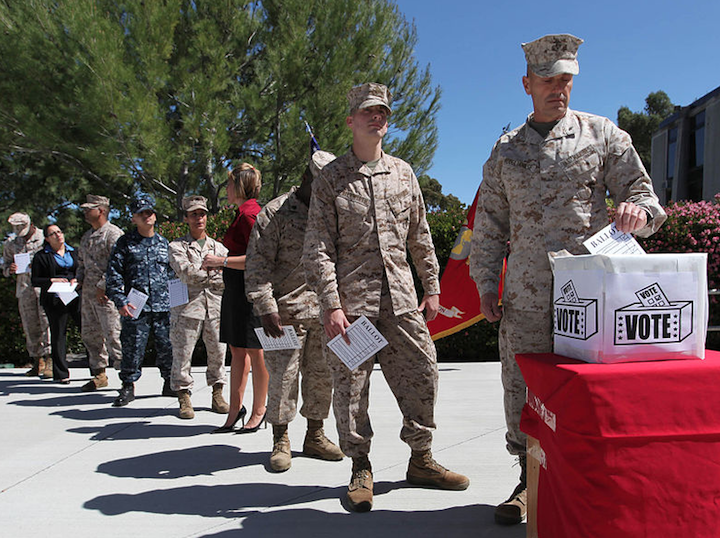The following editorial essay was written by Ingham County Clerk and former State Representative Barb Byrum. Enjoy.

Administering elections is a fascinating job, and one that I take very seriously. Like Michigan’s other 82 county clerks, I’m focused on providing reliable, secure, and hassle-free voting for all U.S. citizens, including military and overseas voters who face unique challenges in exercising their right to vote. Therefore, when several county clerks from around Michigan had the opportunity to meet with the Michigan Secretary of State’s Bureau of Elections recently, we expressed our concerns about many Military and Overseas voted ballots not being counted.
Over 30 years ago, the federal government passed the Uniformed and Overseas Citizens Absentee Voting Act (UOCAVA), which allowed for special registration and absentee voting (AV) provisions for military and overseas civilians. The law included the use of a Federal Post Card Application (FPCA), which allowed UOCAVA citizens to register to vote and request an absentee ballot. The FPCA can be submitted by mail, email, or fax directly to the voter’s election official, the county clerk. However, in Michigan, the voted ballot must be physically received via mail by the close of the polls to be tabulated.
Military and Overseas Voters are often referred to as “MOVE” voters since the federal Military and Overseas Empowerment Act was enacted in 2009. This law and corresponding state legislation expanded UOCAVA by further allowing a UOCAVA voter to submit one AV application and to receive ballots for all the elections for the whole calendar year via email or fax.
The concern, however, is that many MOVE voter ballots are received after polls close, and under Michigan law, they cannot be tabulated. The Michigan Secretary of State may extend the receipt deadline for protected voters. In the November 2016 General Election, unfortunately, this did not happen, effectively disenfranchising many of the military service men and women and other civilians abroad.
Because of the challenges of delivering ballots to MOVE voters in a timely fashion, Michigan Election Law allows for those voters to have their ballots sent via email. However, the voter must then print and vote the paper ballot and mail it back to their local election official. The ballot must be received by the clerk by 8 pm on Election Day. On Election Day, the mailed ballot will then be duplicated onto an actual ballot by two poll workers (one democrat and one republican) for the purposes of feeding that ballot through the tabulator and having it counted like all other ballots. Michigan Election Law does not allow for MOVE voters to return their ballot by any other means.
Many other states allow for the late return of military and overseas voted ballots. Michigan, unfortunately, does not. Our MOVE voters need a way to know their votes are counted. Therefore, I strongly believe that we must expand our ballot acceptance guidelines to allow for electronic (fax or email) return of MOVE ballots.
This proposal would still comply with Michigan’s paper ballot security best practices and allow for recount and election audits.
Because our military service members and citizens abroad deserve better, I look forward to working with the Michigan Secretary of State, Legislature and Governor’s Office to correct this injustice. I also encourage readers to contact their elected officials in support of our MOVE voters and the expansion of ballot acceptance guidelines for these voters.



